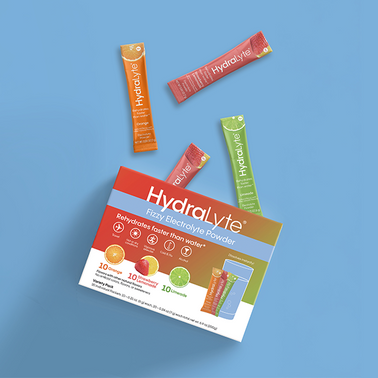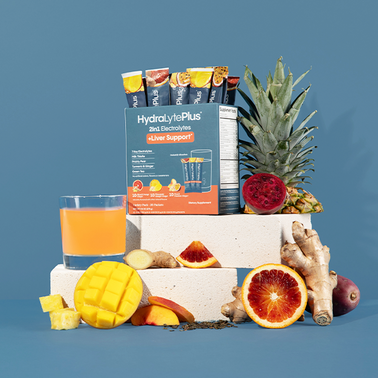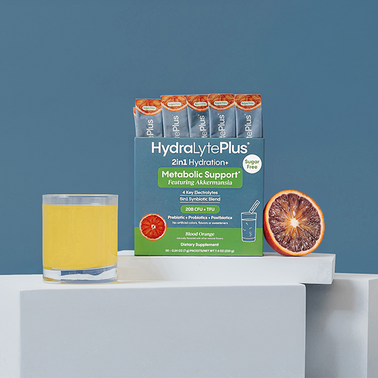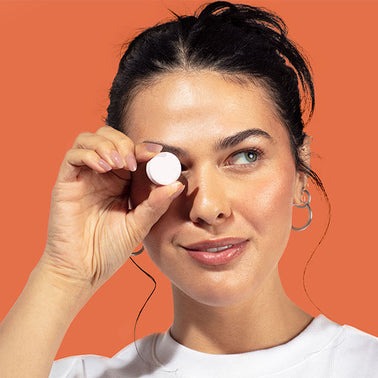By Dr. Natasha MacLeay
We all know that gut and liver health are important, but with so much information out there—from social media tips to advice from family and friends—it’s easy to feel overwhelmed. Many patients come to me wanting to support their liver or gut health but aren’t sure where to start. And it’s completely normal to wonder: just how important is it, really? In this article, I’ll walk you through the gut-liver connection, why it matters, and some simple steps you can take to support both. Let’s dive in.
What Gut Health Really Means
When someone talks about supporting gut health, they’re often referring to the microbiome—the community of bacteria, viruses, fungi, and other microorganisms that primarily reside in the large intestine. But gut health actually encompasses a much broader system of organs, including the stomach, small and large intestines, liver, pancreas, gallbladder, and even the mouth. These organs work together to process food, absorb nutrients, eliminate waste, and support the microbiome.
The microbiome is made up of trillions of microorganisms—there are more bacterial cells in our bodies than human cells!1 (Yes, we’re actually more microbial than human!1) This emphasizes how crucial it is to pay attention to what’s influencing our microbes, and whether it's for better or worse.
Enter the Liver: Why the Liver Matters
Liver health has been a hot topic lately, especially with all the discussions about detoxification. So, how important is the liver, really? The short answer: it’s vital. A little support for your liver can make a huge difference in your long-term health, chronic disease prevention, and overall microbiome function.
The liver is your body’s primary detox organ. Its main job is to neutralize harmful substances—like drugs, alcohol, toxins, and chemicals. It’s also crucial for digesting fats and absorbing fat-soluble vitamins (A, E, D, and K). Additionally, the liver converts nutrients into energy and cellular building blocks. To put it simply, everything you consume, from air to food to water, is processed by the liver.
The liver also metabolizes hormones, like estrogen. When estrogen isn’t properly metabolized, it can lead to menstrual irregularities, PMS symptoms, and conditions like fibroids or heavy periods.2 In today’s world of high environmental toxicity, it’s never been more important to support your liver.

How the Gut & Liver Work Together
The gut and liver communicate through the portal vein, a blood vessel that transports nutrients and other compounds from the digestive tract directly to the liver. When these organs are in sync, it promotes hormonal balance, strong immunity, healthy digestion, and a balanced weight. However, harmful substances in the gut—like toxins, bacteria, or inflammatory molecules—can quickly reach the liver and trigger inflammation, disrupting this balance.
How the Gut Influences the Liver
A balanced gut microbiome produces beneficial compounds such as short-chain fatty acids (SCFAs), which reduce inflammation and strengthen the intestinal barrier. In a condition called "leaky gut," toxins and pathogens can leak into the bloodstream and reach the liver, causing inflammation and oxidative stress. This can lead to non-alcoholic fatty liver disease (NAFLD), a condition characterized by fat buildup and inflammation in the liver.3 Imbalances in the gut microbiome (dysbiosis) have been linked to NAFLD, as intestinal permeability and endotoxins worsen liver inflammation.3

How the Liver Influences the Gut
The liver produces bile, a digestive fluid essential for fat digestion and the absorption of fat-soluble vitamins. Bile also helps regulate the gut microbiome by promoting the growth of beneficial bacteria and inhibiting harmful ones. If liver function declines, bile production may decrease, leading to poor fat digestion, nutrient deficiencies, and an imbalanced gut microbiome.
The liver also filters toxins from the bloodstream. But when it becomes overwhelmed by factors like processed foods, alcohol, or environmental toxins, it can’t detoxify effectively. This stress can lead to a buildup of toxins that not only damage the liver but also disrupt the balance of the gut microbiome, creating a cycle that worsens both gut and liver issues over time.
Signs Your Gut-Liver Connection Needs Support
- Digestive Issues: Bloating, gas, constipation, or diarrhea may signal gut dysbiosis that’s impacting the liver.
- Fatigue and Low Energy: A sluggish liver may struggle to process toxins, leading to chronic fatigue and brain fog.
- Hormonal Imbalances: The liver helps metabolize excess hormones like estrogen. If the liver isn’t working properly, you may experience symptoms like PMS or irregular cycles.
- Skin Problems: Conditions like acne, eczema, or psoriasis can be signs of gut and liver imbalances.

Strategies to Support the Gut-Liver Connection
- Eat a Fiber-Rich Diet: Aim for 25-30g of fiber daily from fruits, vegetables, and whole grains to support gut health and strengthen the intestinal barrier.
- Optimize Nutrition: A diet rich in antioxidants, vitamins, and minerals—such as leafy greens, cruciferous vegetables, garlic, onions, and colorful veggies—can detoxify and protect against oxidative stress.
- Reduce Alcohol Intake: Alcohol stresses both the liver and the gut microbiome. Limiting alcohol can reduce liver inflammation and support a healthy gut.
- Hydrate with Hydralyte Liver Support Plus: Hydration is essential for digestion and detoxification. Electrolyte-enhanced beverages support hydration, nutrient absorption, and liver detox.
- Include Healthy Fats: Omega-3 fatty acids from foods like fish, flaxseeds, and walnuts have anti-inflammatory properties that benefit both the gut and liver.
- Limit Processed Foods and Sugars: Processed foods and sugars disrupt the gut microbiome and overwhelm the liver. Focus on whole, nutrient-dense foods for overall health.
- Work with a Medical Provider: Partner with a healthcare provider for personalized support and lab testing to assess gut and liver health. What might work for one person may not work for you—and vice versa!
Supporting gut health through diet, hydration, and lifestyle can positively impact liver function, leading to better digestion, more energy, clearer skin, and reduced inflammation. The gut-liver axis is a powerful example of how our bodies work as interconnected systems.
**This article is purely educational and should not be considered medical advice. Always consult your doctor.
References:
1) Sender R, Fuchs S, Milo R. Revised Estimates for the Number of Human and Bacteria Cells in the Body. PLoS Biol. 2016;14(8):e1002533. Published 2016 Aug 19. doi:10.1371/journal.pbio.1002533
2) Rhyu J, Yu R. Newly discovered endocrine functions of the liver. World J Hepatol. 2021;13(11):1611-1628. doi:10.4254/wjh.v13.i11.1611
3)Khan A, Ding Z, Ishaq M, et al. Understanding the Effects of Gut Microbiota Dysbiosis on Nonalcoholic Fatty Liver Disease and the Possible Probiotics Role: Recent Updates. Int J Biol Sci. 2021;17(3):818-833. Published 2021 Feb 8. doi:10.7150/ijbs.56214
4) Costantini L, Molinari R, Farinon B, Merendino N. Impact of Omega-3 Fatty Acids on the Gut Microbiota. Int J Mol Sci. 2017;18(12):2645. Published 2017 Dec 7. doi:10.3390/ijms18122645
5) LiverTox: Clinical and Research Information on Drug-Induced Liver Injury [Internet]. Bethesda (MD): National Institute of Diabetes and Digestive and Kidney Diseases; 2012-. Omega-3 Fatty Acids. [Updated 2017 Apr 8]. Available from: https://www.ncbi.nlm.nih.gov/books/NBK548910/
6) Shi Z. Gut Microbiota: An Important Link between Western Diet and Chronic Diseases. Nutrients. 2019;11(10):2287. Published 2019 Sep 24. doi:10.3390/nu11102287
Meet Dr. Natasha MacLeay
Dr. Natasha MacLeay, ND, is a Naturopathic Medical Doctor and co-founder of Tulsi Wellness Club in Del Mar, California. Specializing in gut health, female hormones, and skin, Dr. MacLeay uncovers the root causes of health challenges, transforming them into strategies for resilience and balance. She combines advanced functional medicine testing with naturopathic therapies, including nutrition counseling, botanical and homeopathic medicine, hydrotherapy, and physical medicine. Dr. MacLeay’s expertise spans cognitive and mental health (brain fog, anxiety, depression, ADHD), gastrointestinal health (IBS, IBD, SIBO, GERD, dysbiosis), and endocrinology (thyroid disorders, hormone imbalances, autoimmune conditions).











